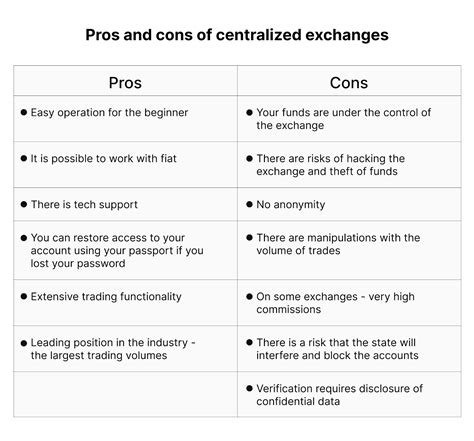Decentralized exchange increase: why cryptocurrency exceeds traditional centralized platforms
In recent years, the financial world has undergone a serious transition to digital currencies and cryptocurrencies. Among them, it became a decentralized stock exchange (Dexs) as a preferred choice for buyers looking for a safer, more efficient and transparent way of buying, selling and selling cryptocurrencies. In this article we will go to the benefits of DEX compared to traditional centralized platforms and examine why they have become a choice of cryptocurrency enthusiasts.
What is a decentralized exchange (DEX)?
Decentralized replacement, also known as the exchange of cryptocurrencies, is an internet platform that allows users to buy, sell and sell cryptocurrencies without relying on central organs. Dexs works with blockchain technology, enabling users to interact directly with each other with intelligent contracts.
Decentralized advantages (DEXS) over centralized platforms
1
security : One of the most important advantages of Dexs are their advanced security functions. Because transactions are registered in a public book, they are resistant to counterfeit and resistant to hacking attempts. In addition, Dexs uses advanced cryptographic methods to make sure that all data is safe and protected from unauthorized access.
- Transparency : The centralized exchange often works secretly, causing users to follow transactions and testing the transaction ID. DEX, on the other hand, are transparent in their actions, which allows users to see each transaction in their blockchain.
- speed : Dexs usually process transactions faster than centralized exchange. This is due to the fact that the brokers do not need (like brokers) to facilitate trade, which can lead to a slower and more expensive processing time.
- Flexibility : In the case of decentralized exchange users, they offer greater flexibility in terms of trade and strategy. Users can choose from different couples of cryptocurrencies, use various commercial tools and carry out transactions with minimal restrictions.
- Low fees : While some DEX can charge fees for some services (such as withdrawal), many others offer competitive prices compared to traditional centralized exchange.
- Public commitment : Decentralized exchanges contribute to a sense of community between users who may interact through forums, social media groups and real -time chat platforms.
- Legislative compatibility : DEX often meets regulatory requirements due to their decentralized nature, facilitating cryptocurrency trade, while reducing the risk of regulatory inconsistency.
Like decentralized exchange (Dexs)
Dex usually consists of several main elements:
1
Order book : List of all available purchasing and sales orders in real time.
- market creators : specialized buyers who provide market conditions of liquidity and management.
3
Intelligent agreements : automated rules regulating trade operations, such as regulation and settlements.
When the user proposes trade, the Dex algorithms perform the transaction, checking the ownership of the involved assets and making sure that all parties meet the regulatory requirements.
Popular decentralized exchange (DEXS)
Some of the most important Dex include:
1
Uniswap

: A popular decentralized exchange known for its liquidity and a friendly user interface.
- Binancex : One of the largest Dex in the world, offering a wide range of cryptocurrency pairs and advanced trade features.
3
Curve financing : High -performance DEX, which uses intelligent contracts to optimize trade operations.